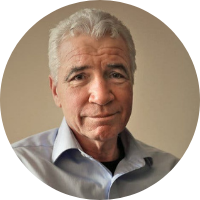In Remembrance
 David H. Greenberg David H. Greenberg
October 14, 1938 – March 4, 2024
For some scholars, enjoyment results from the final product of their research. For some other scholars and their lucky collaborators, enjoyment lies in the research process itself as well. David H. Greenberg was one of those scholars who loved doing research and collaborating, always contributing patiently and in good humor.
David earned his Ph.D. in economics from MIT in 1966. He began his career by gaining hands-on experience in policy research at the RAND Corporation, as a labor economist on the President's Commission on Income Maintenance Programs and at the Department of Health, Education, and Welfare, and as director of the Socioeconomic Research Center at SRI International. He became a full-time academic in 1982 at the University of Maryland Baltimore County where he served as a professor of economics for twenty years.
David contributed to many different areas of policy-relevant scholarship. In labor economics, he focused on evaluating government programs for the economically disadvantaged and wrote a widely cited survey paper that appeared in the Journal of Economic Literature. In addition, he coauthored several editions of the Digest of Social Experiments, which systematically cataloged all federal social experiments that measured economic effects. Although almost all his work has relevance to benefit-cost analysis, he has also made many direct contributions to its practice in the last 35 years.
He began his long collaboration with Anthony Boardman, Aidan Vining, and Dave Weimer on benefit-cost projects in 1989. Their widely used textbook, Cost-Benefit Analysis: Concepts and Practice, had its origin in David’s suggestion for an expanded version of the cost-benefit chapter in the Weimer and Vining policy analysis textbook. David and his new coauthors spent much enjoyable time in Vancouver, Canada, working together on the new textbook and subsequent editions.
Even though David took emeritus status in 2003, he continued to contribute to benefit-cost analysis scholarship until his death. He co-authored many articles on the discount controversy, including several in the Journal of Benefit-Cost Analysis (JBCA). More recently, he co-authored articles in the JBCA on the marginal excess tax burden and on standing. His most recent project, in collaboration with Daniel Acland, addresses the theoretical basis and practical application of utility weighting in benefit-cost analysis. It has already produced contributions to the JBCA.
David is survived by his wife Linda Greenberg, two children, four grandchildren, and one great-grandchild. In his free time, he loved the outdoors and traveling. He was a generous man with a kind smile, quick wit, and insightful thoughts and will be greatly missed by family, friends, and colleagues.
 Jack Knetsch Jack Knetsch
March 30, 1933 - August 5, 2022
Jack was an Emeritus Professor at Simon Fraser University. He made seminal contributions to the fields of benefit-cost analysis and environmental and resource economics for seven decades. Decades!
In 1964, Jack published, a paper entitled “The Influence of reservoir projects on land values” in the American Journal of Agricultural Economics. This was one of the earliest applications of the hedonic property value method.
In 1967, he published Economics of Outdoor Recreation with Marion Clawson, which went through four editions and established the travel cost method as a respected nonmarket evaluation method.
In the 1970s, Jack continued to refine, develop, and apply the travel cost model, publishing numerous papers.
In the 1980s, Jack began his collaboration with Daniel Kahneman and Richard Thaler. In 1986, they published a paper entitled, “Fairness as a constraint on profit seeking: Entitlements in the market” in American Economic Review (almost 5000 citations).
In the 1990s, Jack published a series of papers with Kahnemann and Thaler in the American Economic Review and elsewhere that laid the foundations of behaviorial economics. Each of these papers has thousands of citations. For those of you working in the field of environmental economics in the 1990s, you will also remember reading "Valuing public goods: the purchase of moral satisfaction” (with Kahnemann) in JEEM in 1992. Every environmental economist read this paper. It has been reprinted in five edited volumes.
In the 2000s, Jack published a series of empirical papers on the endowment effect and reference conditions, including “The Endowment Effect and Repeated Market Trials: Is the Vickrey Auction Demand Revelaing” in Experimental Economics.
In the second decade of the 21st century, Jack was one of the early supporters of the Journal of Benefit Cost Analysis. In 2012, he published a paper in the JBCA entitled “Gains and Loss domains and the choice of welfare measure of positive and negative changes.”
Finally, at the beginning of the third decade of the 21st Century, Jack and his co-authors published two new papers, including one entitled “Behavioral Economics, Benefit-Cost Analysis and the WTP versus WTA Choice" in the International Review of Environmental and Resource Economics.
Jack was elected an SBCA Fellow in 2022. One letter of nomination supporting Jack’s designation as a SBCA Fellow said, “Jack is one of the founders of behavioral economics. His papers on loss aversion, endowment effects, and reference points with Kahneman and Thaler have been published in the top journals in economics and cited thousands of times. His work on fairness and economics is seeing a resurgence today.” A second nomination letter said, "Jack Knetsch has challenged conventional wisdom in environmental economics and benefit cost analysis for over 6 decades, and in so doing has left an indelible mark on these fields.”
What more can be said?

Robert Haveman
July 22, 1936 - June 18, 2022
We all seek a fulfilling life. Robert (Bob) Haveman found it through family, friends, and scholarship. He is survived by a loving partner, economist Barbara Wolfe, five children and stepchildren, and ten grandchildren. His outgoing personality and his sincere interest in all those he met enabled him to make and keep many friends. His intellectual generosity and warmth endeared him to his students and colleagues.
Bob was a prolific applied economist. His deep commitment to improving public policy drew him to benefit-cost analysis (BCA) as it was beginning to see application beyond infrastructure projects. He made important contributions to the application of BCA to environmental policy, helping to launch the field of environmental economics. He also helped extend BCA to social policies. He made valuable contributions to SBCA annual meetings and the Society’s Journal of Benefit-Cost Analysis. His colleagues and former students were happy to work with the Society to name Bob an Honored Colleague. The Society recognized Bob’s contributions by naming him to its first cohort of Fellows.
His commitment to scholarship extended to the classroom, where his energy in both undergraduate and graduate classes was infectious. His BCA course was especially well-received, including by public policy students who were not as sympathetic to the economic approach.
Bob also made important contributions to the University of Wisconsin–Madison. He served as the first director of the Robert M. La Follette School of Public Affairs, chair of the Economics Department, and director of the Institute for Research on Poverty.

George S. Tolley
November 12, 1925 - August 31, 2021
George Tolley was a Chicago economist through-and-through. After serving in the US Army during World War II and earning his BA in economics from American University, he came to the University of Chicago to work on his PhD, which he earned in 1955. After an eleven year stint at North Carolina State University, George returned to the University of Chicago in 1966 as a Professor of Economics and remained here until he became an emeritus professor in 2000. George was a familiar presence in the hallways until very recently, and he continued teaching here until 2018.
George made important original academic contributions. From his graduate student days onward, he was an integral part of the highly regarded group of agricultural economists at the University of Chicago that included D. Gale Johnson and T.W. Schultz. He did early research measuring rural poverty. He was a pioneer in the areas of Environmental, Urban, and Energy Economics. His ability to move across fields was a hallmark, distinguishing his work by its interdisciplinary and policy relevance. Among his many accomplishments, George was an internationally recognized leader in the development and application of techniques for measuring costs and values that are determined outside of conventional markets. He applied these techniques to the valuation of urban and environmental amenities and improvements in health and medical treatments, among others. He used such estimates successfully in regulatory proceedings and court cases.
George very much enjoyed working with students and colleagues, giving his time generously to exchanging ideas, providing advice or establishing joint or collaborative projects. He was known as a prolific mentor, ushering into the field a large number of economists, many of whom also rose to prominence in public service, financial institutions, and universities around the world.
George was a former Director of the Center for Urban Studies at the University of Chicago, and a Fellow of the American Association for the Advancement of Science (AAAS). He was a founding editor of the journal Resource and Energy Economics. He held visiting professorships at the University of California at Berkeley, Purdue University, Nankai University, and Guelph University. In 2018, he was the recipient of the Honor A Colleague award by the Society for Benefit Cost Analysis.
In addition to his academic work, George was president of RCF Economic & Financial Consulting. He also held executive positions in the Federal government including Deputy Assistant Secretary of the Treasury for Tax Policy, and Director of the Economic Development Division of the Economic Research Service at the US Department of Agriculture. He consulted widely for federal, state, and municipal agencies, as well as international organizations like the World Bank, on the problems of urban and environmental economics from the 1960s until only a few years ago, both as an academic and in his capacity as President of RCF. His expertise was requested in numerous international studies taking him to Korea, China, Japan, Venezuela, Panama, Iran, Thailand, The Gambia, Israel and Egypt.
In his spare time, George enjoyed gourmet food and restaurants, travel, art, and music. He was an excellent pianist and composed his own music. He believed in celebrating important occasions and loved spending time with his family. His favorite saying was “We’re all in this together.”

Michael Whittaker Jones-Lee
April 3, 1944 – February 22, 2021
Emeritus Professor Michael Whittaker Jones-Lee was a pioneering researcher in the economics of safety policy and risks to human life and health. He was appointed Departmental Chair in Economics at Newcastle University (UK) in 1977 and Adjunct Professor of Risk Management, University of Stavanger, Norway, from 2007 – 2012. He retired in 2010 and was accorded the title of Emeritus Professor. In 2019, he was awarded the Outstanding Achievement Award by the Society for Benefit Cost Analysis. He remained actively engaged in research up until his death.
His research had a fundamental influence on UK policy appraisal. He was central to the adoption of a preference-based measure of a Value of Statistical Life, first in the UK and later in the EU and New Zealand. This superseded Gross Output based measures; a change that reflected his strong ethical belief that people are more than the sum of their (discounted) lifetime productivity. In return, he provided economists with a rigorous theoretical framework to underpin their subsequent research into economics of safety and physical risk (see for example the two books Jones-Lee (1976; 1989), as well as carrying out a number of pioneering empirical studies of his own. A related area of great interest to him was that of altruism and safety. His work in this area continues to be a source of scholarly pleasure for us all. Mike published many articles on the economics of safety in numerous journals, but the Journal of Risk and Uncertainty was particularly close to his heart and for which he served as Associate Editor.
Over his long career, he also worked on substantial contracts for the Department for Transport, the Department for the Environment, Farming and Rural Affairs, Railtrack, Health and Safety Executive and Department of Health. He acted as Specialist Advisor to the Enquiry into Government’s Policy on the Management of Risk by the House of Lords Select Committee on Economic Affairs.
His passing is a loss to his family, friends and colleagues, the Society and the field more generally. He was a brilliant economist - who also held a degree in Mechanical Engineering of which he was very proud - with a wicked sense of humor. A great combination in a truly unique person.

Jerry Ellig
September 19, 1962 – January 20, 2021
Dr. Jerry Ellig was a research professor at The George Washington University Regulatory Studies Center and long-time member of the Society for Benefit-Cost Analysis. His research focused on regulatory impact analysis, regulation of network industries, and performance management in government.
In 2017-18, Dr. Ellig served as chief economist at the Federal Communications Commission. Between August 2001 and August 2003, he served as deputy director and acting director of the Office of Policy Planning at the Federal Trade Commission. Dr. Ellig has also held positions at George Mason University and the Joint Economic Committee of the U.S. Congress.
Dr. Ellig was a frequent contributor to the Society’s annual meetings. He has presented work related to economic analysis and litigation risk, the organization of economists at Federal regulatory agencies, and USDA rulemaking. He also contributed to a popular Society workshop on deregulatory benefit-cost analysis. He also published numerous articles on government regulation and management in both scholarly and popular periodicals, including the Journal of Benefit-Cost Analysis, Journal of Regulatory Economics, Regulation and Governance, Public Choice, Journal of Empirical Legal Studies, and Managerial and Decision Economics. In addition, he published in the broad-circulation media including the Wall Street Journal, New York Times, Barron’s, and Washington Post.
His sudden passing is a loss to the Society and the field more generally. His good humor and insights will be greatly missed.

Martin Weitzman
April 1, 1942 - August 27, 2019
Dr. Martin Weitzman was an outstanding researcher and teacher at Harvard University. He is widely known for arguing that benefit-cost analyses of climate change needed to account for small, but real, risks of catastrophic outcomes. He also provided a lot of the framework for cap-and-trade approaches to limiting pollution and climate change and for thinking about how to discount major events in the distant future. In commenting on his death, William D. Nordhaus remarked that “Marty Weitzman was the pre-eminent environmental economist of the modern era, which is to say of all times.”
Dr. Weitzman influenced hundreds of students during his teaching career at Yale, MIT, and Harvard. Since 1992, he and his colleagues conducted nearly 400 sessions of the Harvard Seminar in Environmental Economics and Policy.
His obituary in the New York Times provides a nice overview of his life and contributions. We at the Society for Benefit-Cost Analysis will miss his insights and collegiality.
|